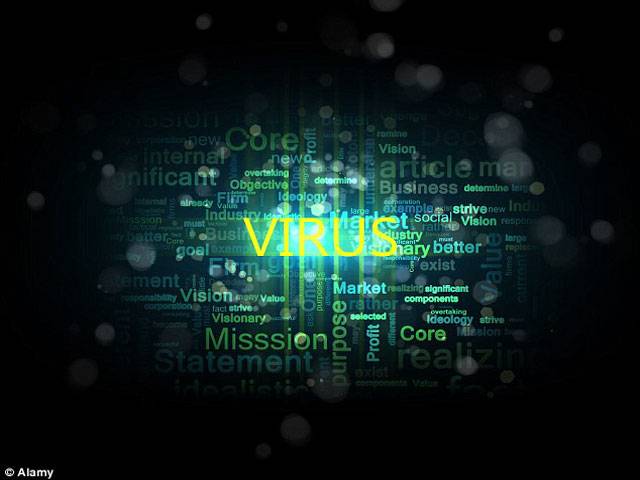DM
London
Humans could accidentally spam aliens or send them dangerous computer viruses in a bid to make contact, researchers at Oxford University have warned. Speaking at the British Science Festival Dr Anders Sandberg, of the Future of Humanity Institute at Oxford University, said humans must be extremely cautious. ‘The classic example of message would be a series of pulses which showed binary numbers, DNA, sketch of solar system or the number of humans,’ he said, according to The Telegraph. ‘But it turns out there are some security problems. Languages can hide a lot of information. We’re worried about malware being sent to aliens. ‘I am kind of split on whether it is a good idea. I see some problems. I favour it a little bit more. But I can see it going either way. ‘Some people think we’re already spamming the universe with reality soaps.’ The UK research network for SETI (UKSRN) has joined forces with the Breakthrough Message Initiative which is inviting the public to have their say in what message to send to space, and offering a prize pot of $1 million for the best ideas.
Dr Sandburg said: ‘The search for extraterrestrial intelligence is very relevant because it helps us figure out more about the possibilities and fate of intelligence in the universe.
‘The silence in the sky either tells us we are rare and unique, and therefore responsible for the future of life in the universe, a huge burden. ‘Or that there is something very dangerous out there which is worth worrying about. ‘Whatever the answer is, it is bound to profoundly affect how we see ourselves and the universe.’
The debate on whether we should contact aliens or not follows from an earlier discussion at the American Association for the Advancement of Science (AAAS) in San Jose, California. The latest data collected by Nasa and other space agencies suggests there could be as many as 40 billion potentially habitable planets in our galaxy, the Milky Way.
Proponents of Seti (Search for Extraterrestrial Intelligence) have said we should consider Active Seti - sending out messages, rather than just listening, in the hope someone is out there. ‘It we live in this jungle neighbourhood where it’s quiet, and if you are a toddler, it’s best to talk it over with the other toddlers before screaming yoo-hoo!’ His views follow similar cautionary tales from esteemed scientists such as Professor Stephen Hawking.
Last year, Professor Hawking warned against inviting an unwelcome visit from aliens, pointing out: ‘The outcome would be much as when Columbus landed in America, which didn’t turn out well for the Native Americans.’ And Dr Brin added: ‘If you bring human history into the discussion, there is a cautionary tale. Name one example of a meeting between an advanced civilisation and a less technically advanced one that did not end in tears.
‘Just because the probability of a negative outcome is very low that does not mean it is zero. The existence of low probability outcomes that might be devastatingly negative is worth pondering.’
Saturday, April 20, 2024
Scientists warn of dangers of insterstellar spam

3:56 PM | March 28, 2024
4:14 PM | March 23, 2024
15-kg heroin worth Rs200 million seized in Khairpur
April 20, 2024
Youth killed by robbers in Shikarpur
April 20, 2024
BISP cash disbursement centre set up in Ratodero
April 20, 2024
DIG directs SSPs to show zero tolerance to outlaws
April 20, 2024
A Tense Neighbourhood
April 19, 2024
Dubai Underwater
April 19, 2024
X Debate Continues
April 19, 2024
Hepatitis Challenge
April 18, 2024
IMF Predictions
April 18, 2024
Kite tragedy
April 19, 2024
Discipline dilemma
April 19, 2024
Urgent plea
April 19, 2024
Justice denied
April 18, 2024
AI dilemmas unveiled
April 18, 2024
ePaper - Nawaiwaqt
Advertisement
Nawaiwaqt Group | Copyright © 2024





